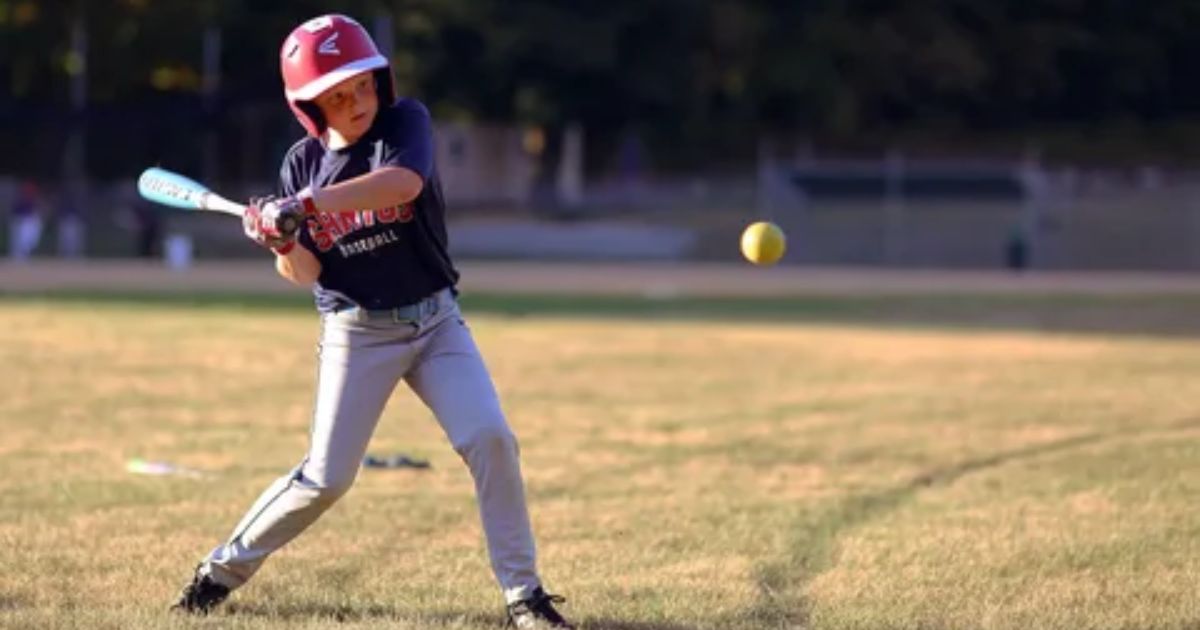Softball, a sport historically associated with women, is experiencing a transformative shift as men increasingly step onto the diamond, challenging preconceived notions and reshaping the narrative surrounding the game. Traditionally regarded as a female-dominated sport, softball has evolved from its coed beginnings to become a symbol of inclusivity.
Discover the changing face of softball as guys step onto the diamond, rewriting the game’s narrative. Breaking free from stereotypes, men are transforming softball into an inclusive field of passion and competition. Join the evolution explore the dynamic world where guys play softball, challenging traditions, and shaping a game for everyone.
In this article, we delve into the dynamic history of softball, examining its origins and the societal shifts that led to its classification as a predominantly women’s sport. We will explore the challenges men face when entering this arena, the changing perceptions within the softball community, and the positive impacts of embracing a more inclusive approach to the game.
The Origins of Softball
Softball has its roots in baseball and can be traced back to the late 19th century. The sport was initially developed as an indoor version of baseball, designed to be played in smaller spaces. As its popularity grew, softball found its way into outdoor fields, and variations of the game emerged. From its inception, softball was predominantly associated with women, and men were often excluded from organized leagues.
The Historical Context of Softball
Softball has a rich history dating back to the late 19th century when it originated as an indoor version of baseball. Initially known as “indoor baseball” or “mush ball,” the sport gained popularity for its adaptability to smaller spaces. It wasn’t until the 1930s that softball began to develop distinct rules and characteristics, differentiating it from its baseball roots.
In the early years, softball was primarily played by both men and women in recreational settings, with mixed-gender teams being the norm. However, as the sport grew and became more organized, it started to be associated more with women’s participation. This shift in perception was partly due to societal stereotypes and expectations around gender roles.
Challenges Faced by Men in Softball
Despite its coed origins, modern softball has been largely perceived as a women’s sport, creating challenges for men who wish to participate. Some of the key hurdles include:
Stereotypes and Gender Norms: Softball has been ingrained in cultural stereotypes that associate the sport with femininity. The prevailing notion that it is a “women’s sport” can discourage men from joining or can lead to misconceptions about a man’s abilities on the field.
Limited Opportunities: Men’s softball leagues and tournaments are not as prevalent as their female counterparts. This scarcity of opportunities can make it difficult for men to find avenues to play competitively or recreationally.
Social Stigma: Men who choose to play softball may face social stigma or teasing due to societal expectations around masculinity. Overcoming these stereotypes requires a shift in cultural attitudes towards sports and gender.
Breaking Barriers: Men in Softball
In recent years, the paradigm surrounding softball has shifted. Men are increasingly challenging the established norms, demonstrating that softball is a sport for everyone, regardless of gender. Leagues that were once exclusive to women are now opening up to men, encouraging inclusivity and diversity on the field. This shift is not only breaking down gender stereotypes but also enhancing the overall competitiveness and skill level of the sport.
Despite the challenges, men are making significant strides in reclaiming softball as a sport for everyone. Several factors contribute to this positive change:
Inclusive Leagues and Tournaments: Recognizing the need for inclusivity, many softball leagues and tournaments are embracing mixed-gender teams. This not only provides more opportunities for men to participate but also fosters a sense of unity and camaraderie among players of all genders.
Changing Perceptions: As society becomes more accepting of diverse gender identities and expressions, the stereotypes associated with sports are gradually eroding. Men who play softball are challenging preconceived notions and contributing to a more inclusive sporting landscape.
Supportive Organizations: Softball organizations are increasingly recognizing the importance of inclusivity. By actively promoting and supporting men’s participation in softball, these organizations play a crucial role in breaking down barriers and fostering diversity within the sport.
Coed Softball Leagues

One significant development in embracing inclusivity is the rise of coed softball leagues. These leagues intentionally bring together players of all genders, creating an environment where teamwork, skill, and love for the game supersede gender distinctions.
Coed softball has gained popularity worldwide, providing a platform for both men and women to compete side by side, and fostering a sense of unity within the softball community. Women play softball alongside men, contributing to the sport’s vibrant and diverse community.
The Rise of Male Softball Players
As men increasingly participate in softball, the narrative is shifting from gender-based stereotypes to a focus on individual skill and passion for the game. Male softball players are showcasing their athleticism, strategic thinking, and dedication, challenging preconceived notions about the sport.
This shift is essential in dismantling stereotypes and promoting softball as a sport that transcends gender boundaries.
Softball as a Family Affair
The inclusivity of softball extends beyond gender to embrace families as a whole. Many coed leagues encourage family participation, allowing fathers, mothers, and children to share the field.
This family-oriented approach not only strengthens the sense of community within softball but also provides a unique opportunity for families to bond over a shared love for the game.
Challenges and Criticisms
Despite the positive strides toward inclusivity, challenges persist. Some traditionalists argue that softball should remain a predominantly female sport, fearing that increased male participation may overshadow women’s achievements in the game.
Addressing these concerns and finding a balance that promotes inclusivity without diminishing the history and accomplishments of female players is crucial for the continued growth of softball.
The Evolution of Softball Culture
The evolving landscape of softball culture reflects a broader societal shift toward inclusivity and gender equality. As softball becomes a more diverse and welcoming space, the culture surrounding the sport adapts to embrace players from all walks of life.
This evolution is not only seen on the field but also in the way softball is portrayed in media, celebrated in communities, and supported by fans.
Celebrating Diversity in Softball
The increasing presence of men in softball brings a new dimension to the game. Celebrating diversity in all its forms, including gender, enhances the richness of the softball experience.
As the sport continues to evolve, it is essential to appreciate and support the contributions of players, regardless of gender, and acknowledge the unique perspectives and skills that each individual brings to the field.
The Future of Softball
The future of softball appears promising as inclusivity becomes a central theme in the sport’s narrative. As more men join the ranks of softball players and coed leagues thrive, the game is poised to reach new heights of popularity and competitiveness.
The ongoing efforts to break down gender barriers contribute not only to the growth of softball but also to the broader conversation about equality in sports.
FAQs
Can guys play softball?
Absolutely! Softball is inclusive, welcoming players of all genders, and guys actively participate at various levels.
Are there specific rules for guys playing softball?
No, softball rules apply uniformly to all players, regardless of gender. The game is structured to accommodate everyone.
What positions can guys play in softball?
Guys can play any position in softball, just like their female counterparts, contributing to the team’s success based on their skills and preferences.
Is there a difference in equipment for guys in softball?
Equipment in softball is standardized, irrespective of gender. Both guys and girls use the same gear, ensuring fairness and equal opportunities.
Are there men’s leagues in softball?
Yes, there are men’s softball leagues where guys can compete at various skill levels, enjoying the camaraderie and competition of the sport.
Conclusion
Softball’s journey from a gender-specific sport to a more inclusive and diverse activity is a testament to the changing dynamics in sports culture. As guy actively play softball, breaking down traditional stereotypes, the game is evolving into a more inclusive and welcoming space for players of all genders. Embracing diversity in softball not only enhances the sport itself but also contributes to the broader movement toward equality in sports and society at large.








